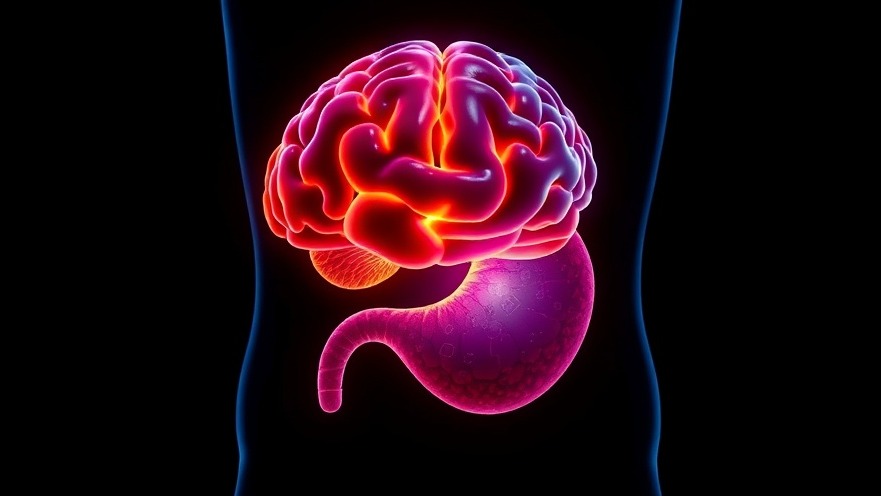
Understanding the Gut-Brain Connection
There's a fascinating relationship between our gut health and brain function, one that has garnered increasing attention in both scientific research and wellness circles. The gut-brain axis suggests that the gut microbiome—a complex ecosystem of microbes residing in our intestines—can significantly influence our cognitive abilities and mental well-being. For middle-aged and seniors, understanding this connection is vital, especially when seeking ways to enhance overall health and promote longevity.
How Healing Your Gut Can Enhance Brain Health
Recent studies indicate that a healthier gut can lead to improved mood, better mental clarity, and decreased anxiety. This is primarily due to the production of neurotransmitters—like serotonin—by gut bacteria, which directly impact emotional regulation and cognition. For those looking to age gracefully, nurturing gut health through a balanced diet rich in fiber, probiotics, and prebiotics is essential to support brain function and overall mental health.
Healthy Aging Tips: Gut Health as a Foundation
Integrating tips for healthy aging can go a long way in fostering both gut and brain health. Here are some actionable insights:
Balanced Nutrition: Consume plenty of fruits, vegetables, whole grains, lean proteins, and healthy fats. Foods high in omega-3 fatty acids, such as fish, flaxseeds, and walnuts, are especially beneficial for brain health.
Staying Hydrated: Proper hydration plays a critical role in gut health. Drinking enough water aids digestion and nutrient absorption, contributing to a healthier gut microbiome.
Regular Exercise: Physical activity not only boosts gut function but also promotes better circulation, supporting cognitive health.
By actively maintaining a healthy diet and lifestyle focusing on gut health, seniors can reap significant benefits for their cognitive abilities and emotional well-being.
The Role of Supplements in Gut and Brain Health
For those interested in enhancing gut health further, certain supplements might be beneficial. Probiotics can help replenish good gut bacteria, while prebiotic fibers serve as food for these microbes, encouraging their growth. Additionally, brain health supplements such as fish oil can offer essential nutrients that support cognitive function. Always consult with a healthcare professional before starting any new supplement regimen.
Trends Towards Longevity: Embracing Gut Health
As more people become aware of the gut-brain connection, there is a shift towards embracing holistic approaches to health—where diet, mind, and body are interconnected. The longevity diet suggests reducing processed foods, increasing the intake of fermented products, and embracing plant-based choices. This trend promotes not only longer life but also a higher quality of living, characterized by vitality and mental clarity.
Common Misconceptions About Gut Health and Aging
Many individuals believe that aging inevitably leads to cognitive decline and poorer gut health. This misconception can lead to a defeatist attitude. However, research shows that proactive measures—including diet modifications and lifestyle changes—can reverse or at least slow down these effects. Educating oneself about gut health and its implications for brain function is essential in dispelling these myths and making informed decisions.
Conclusion: Taking Steps Towards a Healthier You
Healing your gut is not just about physical health; it's a pathway to better mental clarity and emotional stability. With a focus on balanced nutrition, regular exercise, and potential supplements, middle-aged and seniors can significantly enhance their quality of life. As we become more aware of the gut-brain connection, let’s embrace these changes for a healthier and more fulfilling aging process.
 Add Element
Add Element  Add Row
Add Row 




Write A Comment